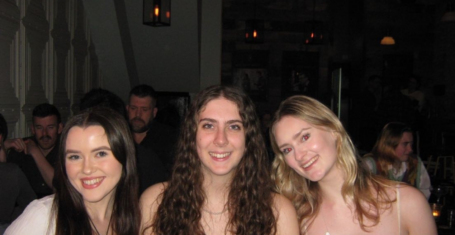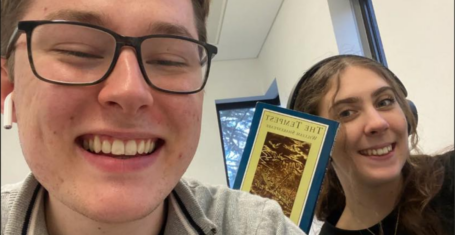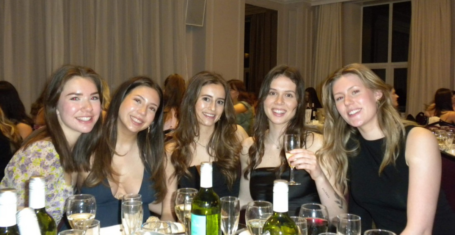
Opportunities Week or weak Opportunities?
The Tab has been out and about on campus investigating the success of Exeter University’s first ever Opportunities Week.
The Tab has been out and about on campus investigating the success of Exeter University’s first ever Opportunities Week. Did you sit up, take note and make the most of it? Or did you just sit around in your pants watching Breaking Bad while eating cereal out of the box?
“What were the opportunities?” one second-year student asked us blithely during an interview.
There were many subject specific events run by colleges, and University-wide activities run by the Guild, all intended to encourage students to break away from the core curriculum of their subjects and gain a wider set of skills and experiences.
Events included:
- Careers talks
- Library resources tours
- Interactive workshops
- An ‘eXfactor’ employability and professional development course
- The launch of the Grand Challenges scheme for first-year students
Corony Edwards, the Head of Education Quality and Enhancement, told The Tab the launch of the Grand Challenges scheme was one of the most exciting parts of the week. It was all about “making first year current for Exeter undergraduates through a program of extra-curricular challenges where students … can engage with a 21st century dilemma.” A packed audience of over 400 people in the Forum auditorium attended, potentially just to get a peep at childhood here and special guest Nick Baker of the BBC’s ‘The Really Wild Show’.
In regards to the week as a whole, Edwards stated that there was a “very big program of offers, [although] some were better attended than others.”
As it was the University’s first Opportunities Week, she highlighted that it had “been a bit of an experiment” and that next year would focus on the most successful parts.
Mark Gibbs, the English SSLC Subject Chair, said: “It’s a great initiative and something that could definitely be a success in the future, if only the communications were sorted out so that people actually knew what was going on.”
Contrary to this, there were a substantial number of students who did have a clear idea of what was on offer and a desire to be present at the week’s events.
Josh Creek, a first year English undergraduate, told The Tab: “I attended a ‘Grand Challenges’ session as well as two days of eXfactor employability…. [I] knew in advance through notices in lectures, seminars and online.”
However, not everyone seemed to embrace the opportunities laid on for them. In particular, many second and third year students turned a blind eye to Opportunity Week emails, choosing instead to get ahead with work (or catch up on 4 on Demand).
Alice Pearson, a Geography student said: “I thought [the week] was okay because I got loads of work done – reading and essays – but I didn’t really take advantage of the opportunities offered. I didn’t go on campus once. I just stayed in my room.”
Other students did decide to venture further from the comfort of their bedrooms, although not always in the direction of the opportunities awaiting them on campus.
Cameron Milne, President of the English Society, admitted that he “made the most [of Opportunities Week] by relaxing at home … I loved having time to relax! ”
Corony Edwards reflected on Exeter’s wish to continue developing as a highly successful University, and how the week was an outcome of this aim, rather than something merely to satisfy students paying higher fees. “Exeter has done really well in teaching related league tables, so this is not just about how can we satisfy the £9,000 fee students. It’s about how we can offer everyone overall a better learning experience.”
While Exeter’s student population may not have fully embraced ‘Opportunities Week’ in the way it was intended, undergraduates from all year groups seem to have taken the opportunity to rest, work, and play, and seem keen for the same again next year.









































